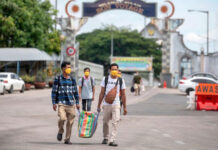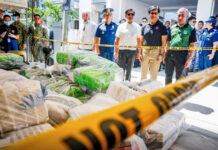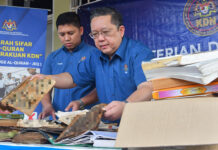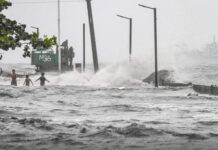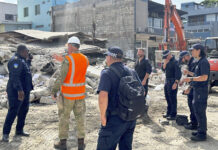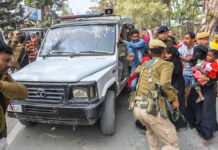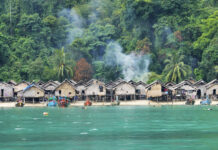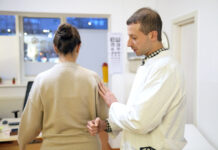BANGKOK (AFP) – Mothers who have lost sons, young women training as combat medics – none of Myanmar’s population has been left untouched by the tumult that has engulfed the country since a military coup two years ago.
From striking civil servants on the run to rebels holed up in the dense jungle, AFP talks to five people whose lives have been upended by the coup and the two years of crisis.
Caroline put her dreams of attending university on hold and left home to join one of the “People’s Defence Force” groups formed to fight the junta near the Thai border.
After just a month of training at a rebel camp, she was sent to the front lines to treat wounded fighters and endure a baptism of fire on the battlefield.
“Sometimes I treated an injured soldier and I was afraid, as I was not able to save him,” she told AFP.
“I didn’t know what to do because of the stress.
“I felt so depressed whenever I wasn’t able to save a soldier. But I realised that I can’t be depressed all the time. I have to think how to improve myself and how to save them next time.” She said one thing was keeping her going through all of the hardship. “Even though I gave up many things, I will be satisfied if we get our democracy back.”
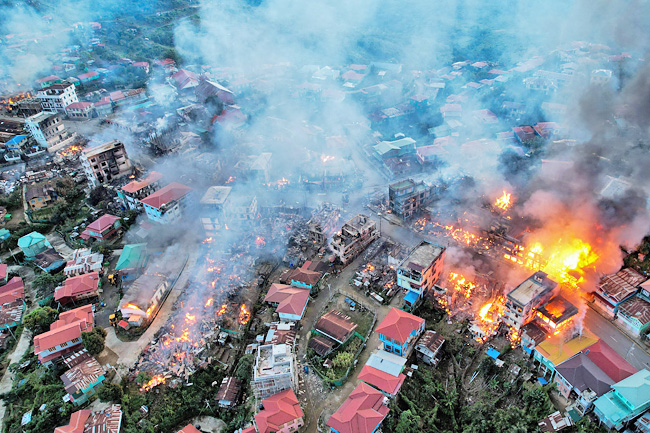
Like thousands of other young people enraged by the military putsch and crackdown on peaceful protests, Juu Tit’s son joined a People’s Defence Force and learned how to fight.
Her son’s duties took him away from home for two to three months at a time as fighting raged around eastern Kayah state.
Months later, he died in combat, leaving his mother bereft, caught between pride and loss.
“He is dutiful to his family and country, but sometimes I think about him and I feel sad and can’t hold back my tears,” she said.
“I don’t know about politics. I lost my young son, and when I see his friends, I cry,” she added.
“After I raised him and cared for him his whole life, I feel lost now that he has gone.”
Tun Aung left his job as a government civil engineer a few days after the coup and joined the “Civil Disobedience Movement” (CDM), which brought hundreds of thousands of workers out against the coup.
The junta responded with a crackdown, relying on tips from informers and surprise raids to round up those still on strike.
Tun Aung – a pseudonym AFP is using to protect him from retribution by the authorities – has spent the last two years in hiding, changing location frequently and unable to find another job.
“Sometimes, I was denied work even after they said I was appointed because I have been with the CDM,” he said.
Struggling to feed his family, he now manufactures washing detergent and sells what he can.
Aye Thida had been working as a radiologist at a Yangon hospital for eight years.
She joined the CDM two days after the coup and has not worked at the hospital since – despite multiple letters from the government ordering her back.
But in her small hometown, being seen not working can be dangerous, she said, with junta informants everywhere. “Everyone in my hometown knows me as a government employee,” she said, also asking to use a pseudonym because of fears for her safety.
“Pro-junta people, like ward administrators, live on our street.”
So she keeps a low profile and stays away from her family, living instead in safehouses or with friends for a few days at a time.
“I feel unsafe going back home.”
“The main difficulty is the trauma of our people,” said Lin Lin, from another People’s Defence Force group in the east of the country, which has seen heavy fighting between the military and anti-coup soldiers.
“When a soldier dies, every friend and family member of this soldier is depressed… We have to encourage them to be stronger.”
Enduring air strikes and shelling from the better-equipped junta troops, he and his comrades are still united by a common purpose.
“These soldiers were strangers before this revolution, but they became brothers, family,” he said.
“When an elected government is selected by the people, we will rest… We will all leave the revolution and we will do the jobs we wanted to do.”







